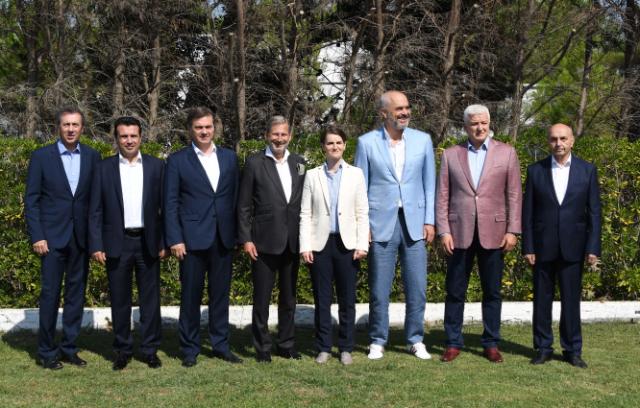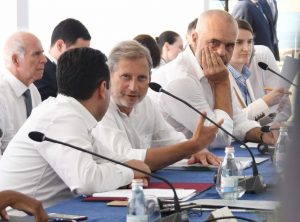Johannes Hahn, Commissioner for European Neighbourhood Policy and Enlargement Negotiations, has attended the informal meeting of the Prime Ministers of the Western Balkans Six in Durres in Albania. The meeting was focused on boosting the implementation of the commitments taken at the Trieste Summit in July 2017, especially the action plan on the deepening of economic integration.
Speaking at the press conference, Hahn said that economic cooperation in the region was one of the engines for the region to join the European Union which has been helping the states to improve their citizens’ lives.
According to Hahn, “citizens are often bothered with constant requests from the EU, but these requests are useful for them also.”
He added that deepening of economic relations has been agreed at the Trieste Summit and insisted that the implementation of the agreement was now the next step.
As an example of the importance of regional economic relations, Hahn noted that “each of the countries in the region has individually doubled its exports into EU member countries, while the regional trade has remained on the same level. This shows that there is a big potential there and that is why the idea of a regional market was born.”
He said that it was in the EU interest for all the countries in the region to become members as soon as poosible, but warned that numerous measures were necessary to be implemented for such goal.
Hahn said that the crisis in the relations between Serbia and Macedonia was quickly solved, that there was neither time nor need for Brussels to interfere, but added that he wanted to hear more about the background of this case. “I hope that such cases will be avoided,” the European Commissioner said.
Serbian Prime Minister Ana Brnabic said Belgrade would continue to implement economic reforms, improve business conditions and strenghten investors’ confidence. She added that Serbia has prepared a number of measures for liberalisation of services trade, while the IMF estimated that the results of Serbian economy have been above expectations, above all due to strenghtening of public finances, improvement of structural measures and increasing the confidence within economy sector and stressed that Serbia’s priorities were a development of digital economy, but also strenghtening of IT sector and enterpreneurship, the Serbian government said in a statement.
Montenegrin Prime Minister Dusko Markovic said that frequent meetings between Western Balkans prime ministers were a guarantee that the region would reach economic results. Albania’s Prime Minister Edi Rama described as an important the change that, despite disputes at times, regional leaders have been talking among themselves, so life went on and people were focused on the future.
Rama noted that it was important to simplify bureaucratic procedures and decrease customs time frame for export of goods, in order to incite trade. “Each country is a small market individually, but together we can become important,” Rama estimated, adding that the EU and World Bank support was important for that goal.
The Regional Economic Area agreed at the Trieste Summit should provide new opportunities for businesses and citizens alike and strengthen growth and jobs. The next concrete steps include the mutual recognition of professional qualifications, identifying and scrapping red tape and regulatory barriers that impede trade and investment in the region, setting up a regional dialogue on digital transformation, and launching negotiations on a dispute settlement mechanism.
The European Commission strongly supports the Western Balkans’ regional co-operation as an integral part of their EU accession perspective, through substantial investments in connecting infrastructure, economies and people within the region itself and between the Western Balkans’ region and the European Union.





